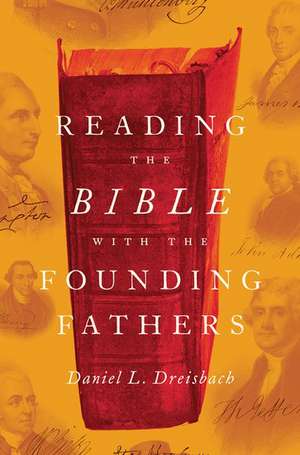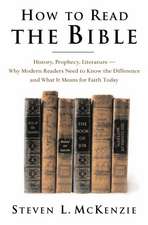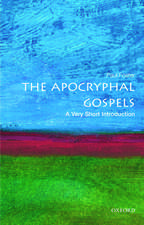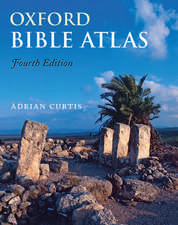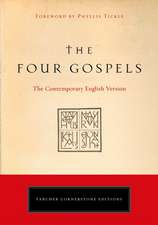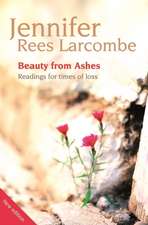Reading the Bible with the Founding Fathers
Autor Daniel L. Dreisbachen Limba Engleză Hardback – 29 dec 2016
Preț: 300.50 lei
Nou
Puncte Express: 451
Preț estimativ în valută:
57.50€ • 61.49$ • 47.94£
57.50€ • 61.49$ • 47.94£
Carte disponibilă
Livrare economică 28 martie-11 aprilie
Preluare comenzi: 021 569.72.76
Specificații
ISBN-13: 9780199987931
ISBN-10: 0199987939
Pagini: 344
Dimensiuni: 239 x 163 x 33 mm
Greutate: 0.61 kg
Editura: Oxford University Press
Colecția OUP USA
Locul publicării:New York, United States
ISBN-10: 0199987939
Pagini: 344
Dimensiuni: 239 x 163 x 33 mm
Greutate: 0.61 kg
Editura: Oxford University Press
Colecția OUP USA
Locul publicării:New York, United States
Recenzii
Dreisbach easily accomplishes the stated goal of his book, which is to illustrate that "the Bible was featured prominently in the political discourse of the American founding." No one could read it and come away with the attitude that the Bible is irrelevant as a source for understanding the political ideas of the American founding... Hopefully, this book will prompt further investigations into a question whose importance it has clearly established.
Dreisbach's work is an important contribution to the ongoing discussion of the role of religion in American public life and of the nature of the ideological heritage left to us by the founding fathers. Dreisbach writes clearly, and this work will serve as a helpful introduction for those who have never considered the pervasive influence of the Bible upon the American founding.
With the contest over America's heritage intensifying since the election of Donald Trump, the need for better understanding of the relationship between religion and politics in the founding era of the United States has never been greater. As Americans enlist past events in partisan disputes, we are more painfully aware of the fractured nature of historical memory. In this fraught situation, Daniel Dreisbach's deeply researched investigation into how the founders imagined America's republican government is most welcome.
One of the many merits of Daniel Dreisbach's book is to show how misleading this picture [of the Founding Fathers as cool to religion] is. Against this popular image, the Bible was referenced more often than any other text, or even writer, during the Revolutionary period... Reading the Bible with the Founding Fathers is a scholarly book, drawing on an abundance of source material and demonstrating an admirable familiarity with the period and the Bible.
Dreisbach's work is an important contribution to the ongoing discussion of the role of religion in American public life and of the nature of the ideological heritage left to us by the founding fathers. Dreisbach writes clearly, and this work will serve as a helpful introduction for those who have never considered the pervasive influence of the Bible upon the American founding.
With the contest over America's heritage intensifying since the election of Donald Trump, the need for better understanding of the relationship between religion and politics in the founding era of the United States has never been greater. As Americans enlist past events in partisan disputes, we are more painfully aware of the fractured nature of historical memory. In this fraught situation, Daniel Dreisbach's deeply researched investigation into how the founders imagined America's republican government is most welcome.
One of the many merits of Daniel Dreisbach's book is to show how misleading this picture [of the Founding Fathers as cool to religion] is. Against this popular image, the Bible was referenced more often than any other text, or even writer, during the Revolutionary period... Reading the Bible with the Founding Fathers is a scholarly book, drawing on an abundance of source material and demonstrating an admirable familiarity with the period and the Bible.
Notă biografică
Daniel L. Dreisbach is a professor at American University in Washington, D.C. He received a Doctor of Philosophy degree from Oxford University, where he studied as a Rhodes Scholar, and a Juris Doctor degree from the University of Virginia. He has written extensively on the intersection of religion, politics, and law in the American founding.
